As some might know, I come from a diplomatic background. This means that, above all, I’ve been trained to be tactful, perhaps to a fault on occasion. This is all well and good when it comes to engaging with people at work or socially, but it becomes problematic when that aspect of my personality stands in conflict with being a vegan, or rather the vegan I feel I should be: one that stands out more and challenges others, even if it is at the cost of social graces and human relationships.
There is an undeniable stigma attached to being a vegan and vegetarian in a prolifically omnivorous country such as South Africa, where I’m situated, and arguably across the world (though admittedly there are also prolific exceptions, such as India, of course). In such a context, it is rather a balancing act to be a diplomatic vegan that wishes to carve out a veggie-friendly space in the world but also not be blind to the fact that one is in the stark minority and is often considered physically and mentally malnourished.
To be honest, I’m rather sick of being considered sickly. I often feel that, by trying not to offend others and trying to be a compassionate, humanist vegan, I’m diminishing a part of myself that wishes to advocate more fiercely as an anti-speciesist – again, without alienating or denigrating my own species. I’m always relieved when websites like Vegans Are Cool or articles like Kathy’s Vegans Are Not Annoying pop up on the blogosphere, and that there are vegans who advocate for a positive attitude on all sides, but at the same time I desperately want to send out mass emails to all my family and friends with videos of cows being separated from their babies for their milk, or articles which advocate for actual reform, not just tolerance.
How does one take a “stand” and actively campaign for veganism as more than just a diet and lifestyle in the broad sense of the word without being perceived as aggressive, fringe or radical? We’ve all seen PETA supporters strip down (it’s pretty much the first thing that pops up if you type in “PETA protest”), or others who have had themselves branded with a cattle iron to get their point across, but is there a space between all so-called extremes where one can exist as a vegan individual without making an argument out of everything and still face yourself in the mirror?
I honestly am amazed and thankful that there are such people out there who make waves and, as Emily points out, whose actions are not as extreme as what we do to animals (you can read her full article on the matter here). I’m in a way relieved when such people make a point of acknowledging that their actions and activism are out of their comfort zone, but that then makes me question my vegan profile even more considering they still manage to be vocal somehow and I just post recipes and get into relationships with omnivores.
As much as it pains me, I often don’t think I’m vegan enough, despite doing my best (in a friendly fashion) to educate and engage with those around me (almost all omnivores in Real Life) on where animal products are hiding, why I gave away my leather wedding shoes (despite being amazingly comfortable), and forgoing all birthday cake that I myself did not make or supervise (no matter how rude it may seem to abstain). I don’t form rallies, don’t troll the internet for anti-vegan sentiments to argue against, nor do I wish to, because it’s not my personality – yet. A few years ago I could barely leave the house because of a gripping fear of people and extreme all-round anxiety, so even blogging or doing my job where I have to sit at a center surrounded by students already pushes my limits. And yet, what is that compared to the cruelty faced by animals – who honestly cares about my fears when other creatures live in fear every day of their lives?
Am I perhaps required by my moral conscience to test myself and put my morality before my human, functional self, and in so doing acknowledge that the two are very different and must function separately in order for me to be outspoken and less tactful as a vegan but still be my diplomatic self in other situations? In that case I have even less reason to rant and “radicalize” myself artificially, because by admitting that it would be outside my comfort zone and outside the realm of possibility without schism would also mean I would have to be tolerant and diplomatic towards non-vegans if I don’t want to make a complete hypocrite of myself.
After all, you do get omnivores and vegetarians that will swear up and down that they love animals, and may even work with animal rescue and the like and still indulge in cheese, meat, or animal products or be party to the process. So, back to square one. Essentially, some vegans, like myself, will have to make peace with the fact that we can’t all be militant or vibrant or out-there activists that challenge people outright, but instead help non-vegans get to grips with the idea and the reasoning through pleasant chit-chat, talking about animal welfare in general, or sharing yum food photos. It doesn’t mean we aren’t any less aware or compassionate towards animals, the environment, or issues of morality and rights.
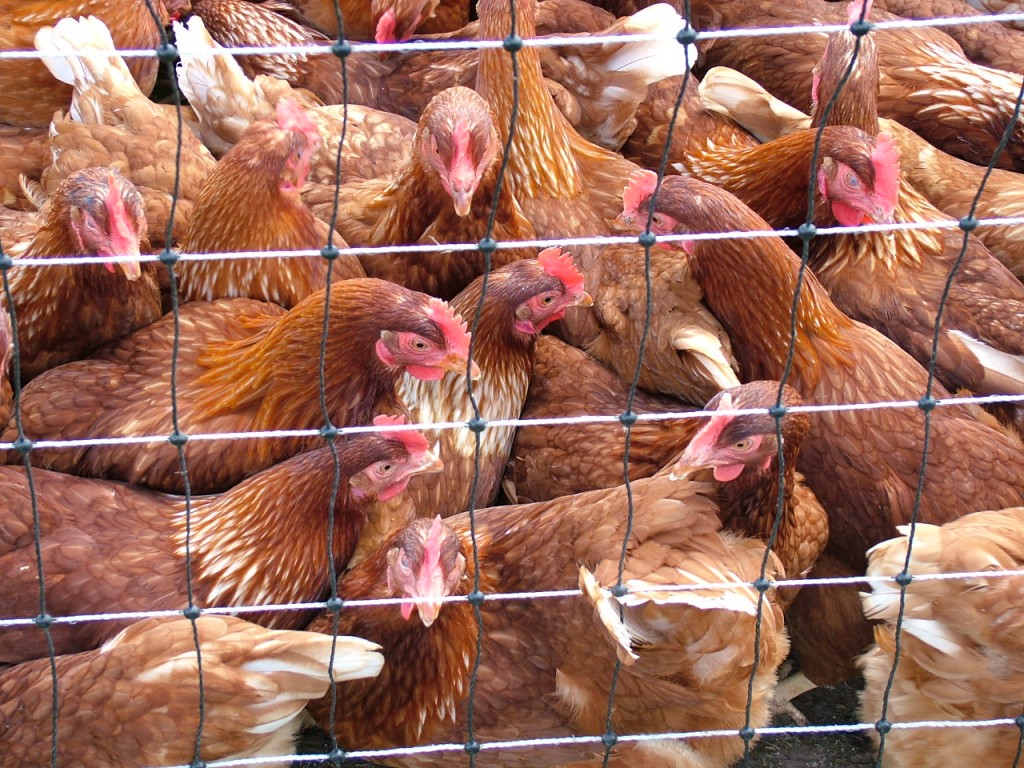 Being a blogger for two+ years and heavily stalking/admiring vegan and vegetarian bloggers for long before that, however, I must admit that the kind, bubbly, non-“aggressive” vegans are also doing amazing things for bringing veganism as a plight and life purpose to light. I was in no small part convinced that I would survive physically and mentally as a vegan by delicious food recipes and seeing a vibrant, friendly community that made a point of providing easy “how-to” guides for transitioning, or helpful “what the heck is veganism anyway?” pages on their blogs for the randoms who somehow stumbled in their direction. Again, positivity attracts certain people, and the stark reality of what faces animals each and every day speaks to a completely different crowd – they are not mutually exclusive, of course, but in terms of taking action it is difficult to be all things at once.
Being a blogger for two+ years and heavily stalking/admiring vegan and vegetarian bloggers for long before that, however, I must admit that the kind, bubbly, non-“aggressive” vegans are also doing amazing things for bringing veganism as a plight and life purpose to light. I was in no small part convinced that I would survive physically and mentally as a vegan by delicious food recipes and seeing a vibrant, friendly community that made a point of providing easy “how-to” guides for transitioning, or helpful “what the heck is veganism anyway?” pages on their blogs for the randoms who somehow stumbled in their direction. Again, positivity attracts certain people, and the stark reality of what faces animals each and every day speaks to a completely different crowd – they are not mutually exclusive, of course, but in terms of taking action it is difficult to be all things at once.
The UN advocating for veganism for mostly environmental reasons isn’t perfect, in that it doesn’t address animal cruelty as a key reason, but vegans should take what they can get, or is that exactly the point – they shouldn’t, whether as individuals or as a group, and instead fight for more? There is, as is only natural in human society, no conformity, no absolute unity within veganism. For some it’s just code for a health-based lifestyle, for others a trial run, and for others an absolute commitment to eradicating an on-going massacre. In such a set-up then, how can there be set terms and conditions or a consensus on moral duties to which all vegans must subscribe to and advocate? Is it possible to say what is “enough” to be able to truly claim veganism for yourself?
There can surely not be such a thing, but I believe that a positive and supportive attitude makes a big difference, no matter your starting point, in reaching others and addressing issues that spring from veganism, whether it be environmental, ethical or edible. I get mushy when I read that the people who started Veganuary” are described as “working hard” rather than a “dairy-despising” couple who want people to be unhappy (both articles being from the same website, strangely enough), and I want people, vegan or otherwise, to feel good about veganism, even if they don’t actually want to become vegan.
Some might argue I’m letting down the whole of the animal kingdom by saying such a thing, but it doesn’t mean that I don’t watch the gory, heart-wrenching documentaries or read the stats of how many animals are abused, tested on and killed every moment of each day – I just know how to read my audience and when to push boundaries, and when to wait for another day.
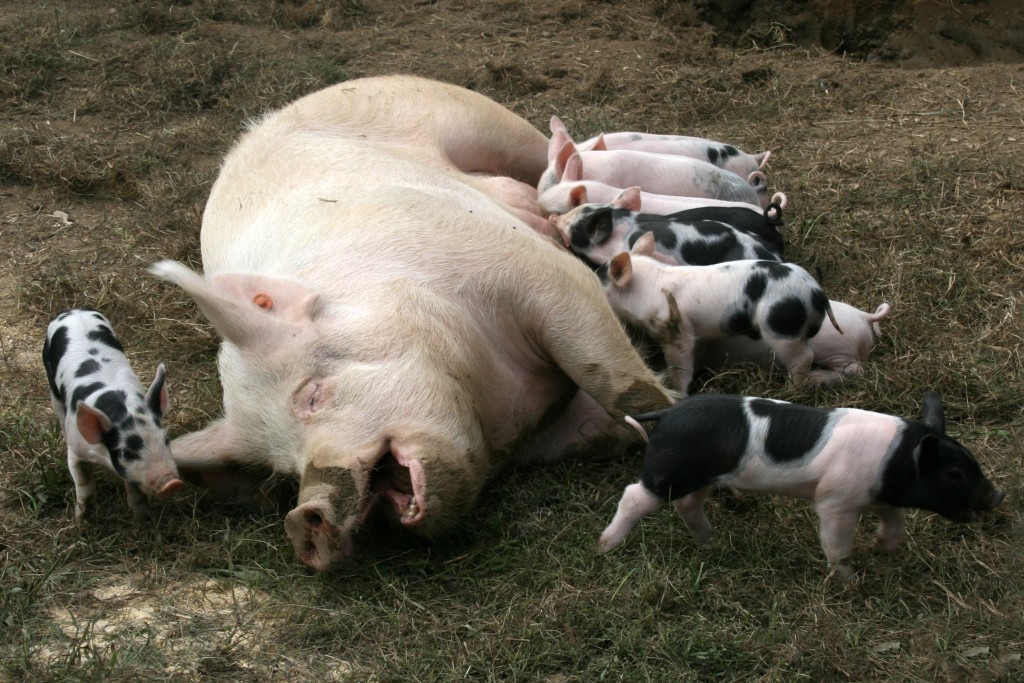 I would like to think that if there were a world in which humans were actively being bred, held captive, and eventually slaughtered to be consumed or harvested (a world which in many respects is already real), there would be an outcry of massive proportions, but even now when we have human trafficking, modern day slavery, and even human breast milk for sale, there is still a lack of outrage from every individual or community, so trying to shock people into recognizing that they may have a form of cognitive dissonance when it comes to the experiences of other animals for consumption or exploitation seems rather fruitless then.
I would like to think that if there were a world in which humans were actively being bred, held captive, and eventually slaughtered to be consumed or harvested (a world which in many respects is already real), there would be an outcry of massive proportions, but even now when we have human trafficking, modern day slavery, and even human breast milk for sale, there is still a lack of outrage from every individual or community, so trying to shock people into recognizing that they may have a form of cognitive dissonance when it comes to the experiences of other animals for consumption or exploitation seems rather fruitless then.
After all, people will lovingly feed pond ducks and then eat dead ducks with no qualms. In that sense being a diplomatic, Powerpoint presentation kinda vegan only fulfills a minor function in transforming opinions and society, but so too do the so-called extremists. Nevertheless, it doesn’t mean one has to stop trying.
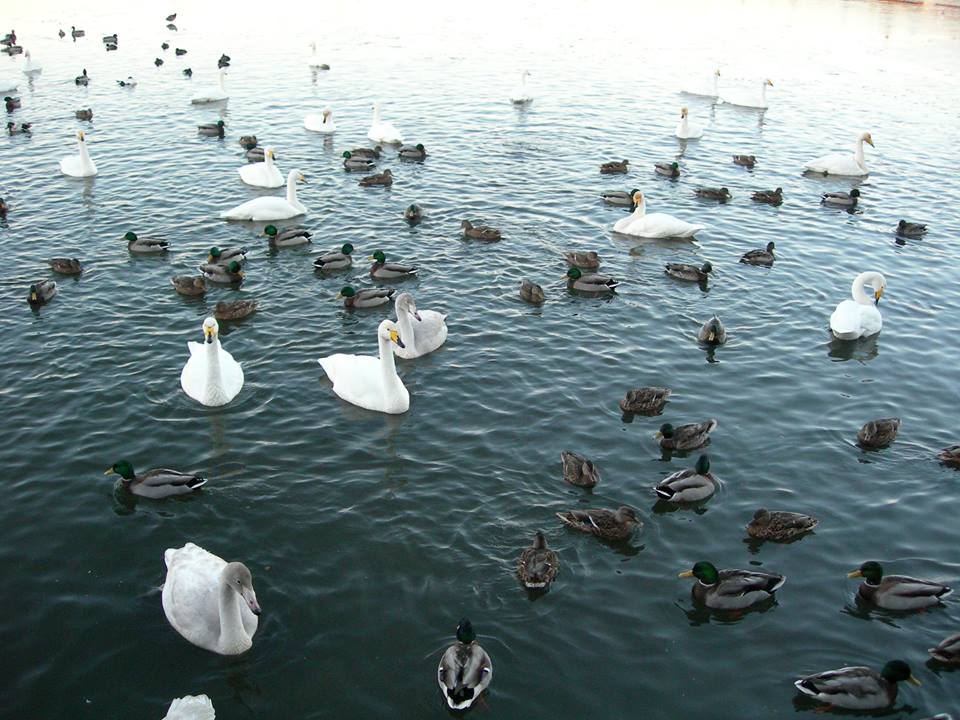 Clare Mann, in an article entitled How to be an Effective Vegan Advocate, says “Let’s be the best example for veganism – in our health, appearance, compassion, outlook and ability to listen – then people will look to us and say ‘Whoa! How can I have this too?’”. When I read articles like this I feel much better about myself; there’s always room for more advocacy, but I don’t want antagonism. Together with Sara Kidd, Clare runs courses that tackle vegan advocacy through communication skills development, and that drives me absolutely wild with glee because it’s good to know there are always different ways of approaching people with your passion; words, in such cases, need not be barren to creating change.
Clare Mann, in an article entitled How to be an Effective Vegan Advocate, says “Let’s be the best example for veganism – in our health, appearance, compassion, outlook and ability to listen – then people will look to us and say ‘Whoa! How can I have this too?’”. When I read articles like this I feel much better about myself; there’s always room for more advocacy, but I don’t want antagonism. Together with Sara Kidd, Clare runs courses that tackle vegan advocacy through communication skills development, and that drives me absolutely wild with glee because it’s good to know there are always different ways of approaching people with your passion; words, in such cases, need not be barren to creating change.
If only it were as easy as laying down the bare facts to fight our case, as Aristotle would say (whatever “our case” may be, when again there are so many types of vegans). Not everyone responds well to being cornered, or are quick to feel that way regardless of your approach, but again, this is where those how-to guides or courses geared for communicating your beliefs and worldview are invaluable tools for some to laying the foundation for future advocacy and change; a starting point or comfort zone, it shouldn’t really matter or be any less important than other less circumspect methods.
Just as you get lazy vegans, obese vegans, snarky and smoothie vegans, I’m trying to get to a space where being a diplomatic vegan is legit and no less than being in-your-face. It makes me a bit despondent that my personality holds me back and forces me to micromanage how I portray veganism, such as very occasionally posting videos of abused or exploited animals to my Marfigs Facebook feed and not to my Margaux Facebook friends page, but I’m still satisfied that people who know me by my actual name aren’t in any doubt about who I am and what I believe in.
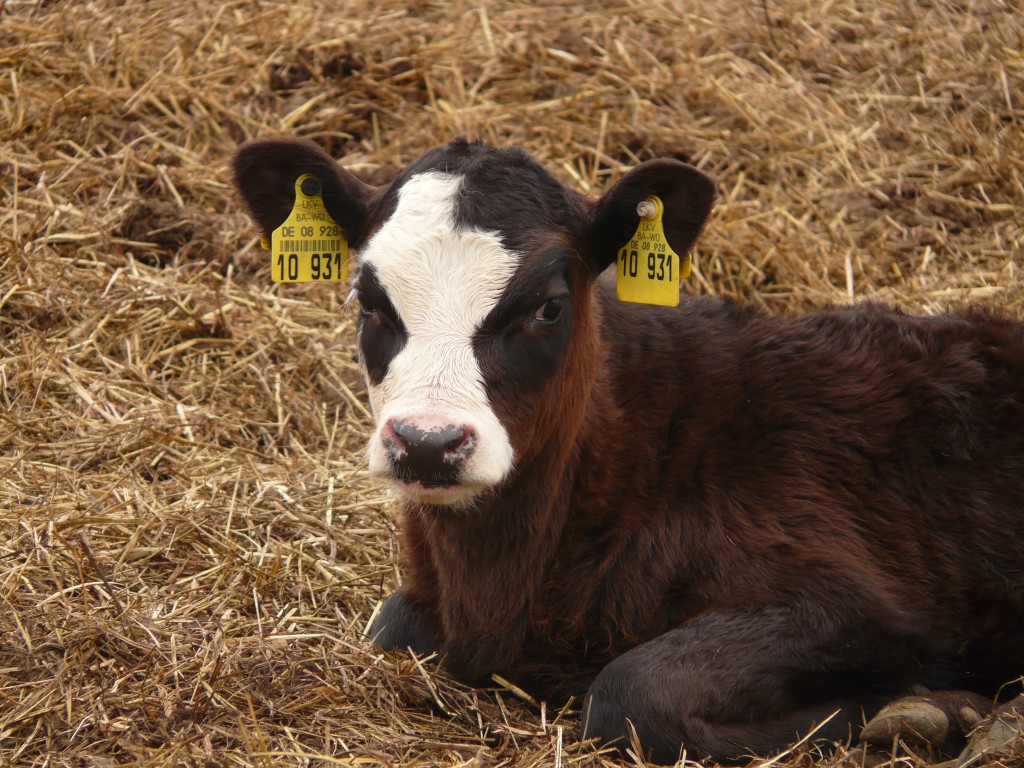 I guess my point is that there are so many forms of veganism, and within that so many forms of being visible or actively vegan, that, much like anything else in one’s life, it’s up to each individual to carve out their own way of handling things and to be able to justify their action (or lack thereof) to themselves. I can’t end this article with helpful hints or common pitfalls, because there are too many variables. There’s a lot of shaming going on in the vegan community of people who have “jumped ship” or do things in their own way, but in a world of misinformation, prejudice and plain old idiocy, I don’t want to be a dead-end for curious omnivores or vegans with different objectives and opinions; I want to be an open door.
I guess my point is that there are so many forms of veganism, and within that so many forms of being visible or actively vegan, that, much like anything else in one’s life, it’s up to each individual to carve out their own way of handling things and to be able to justify their action (or lack thereof) to themselves. I can’t end this article with helpful hints or common pitfalls, because there are too many variables. There’s a lot of shaming going on in the vegan community of people who have “jumped ship” or do things in their own way, but in a world of misinformation, prejudice and plain old idiocy, I don’t want to be a dead-end for curious omnivores or vegans with different objectives and opinions; I want to be an open door.
For the moment, I hope being a diplomatic vegan is enough, though I will continue to challenge myself as best I can, and can only hope others do the same.

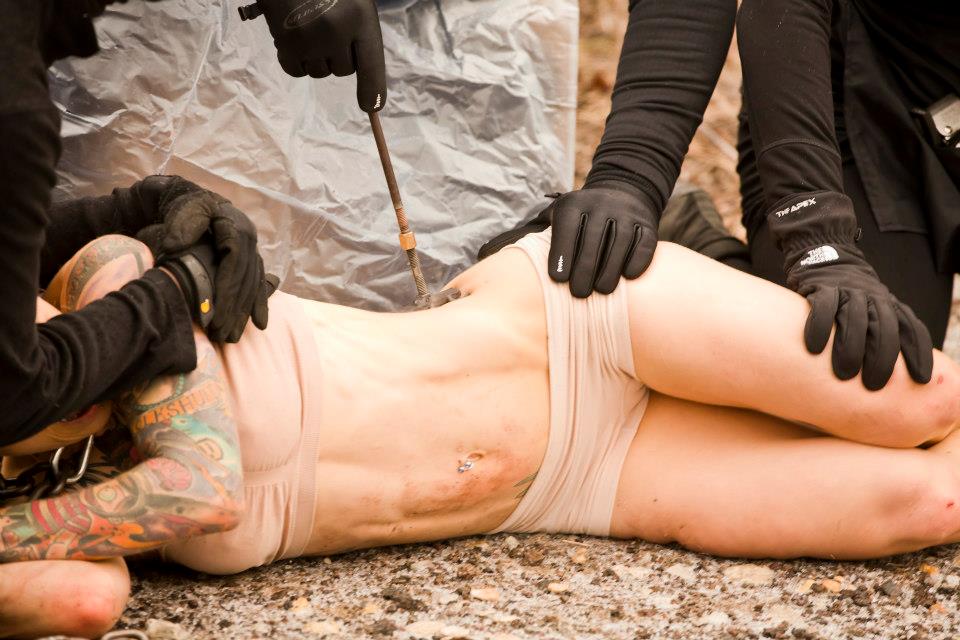
[…] I get started, some housekeeping! I wrote another article for Chic Vegan on Being a Diplomatic Vegan – it’s a subject I feel strongly about because I struggle every day in all sorts of […]